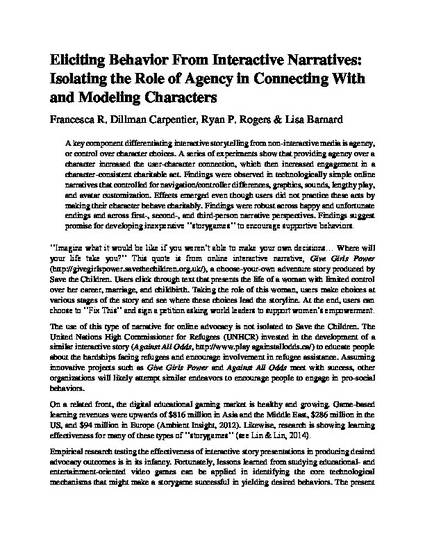
A key component differentiating interactive storytelling from non-interactive media is agency, or control over character choices. A series of experiments show that providing agency over a character increased the user-character connection, which then increased engagement in a character-consistent charitable act. Findings were observed in technologically simple online narratives that controlled for navigation/controller differences, graphics, sounds, lengthy play, and avatar customization. Effects emerged even though users did not practice these acts by making their character behave charitably. Findings were robust across happy and unfortunate endings and across first-, second-, and third-person narrative perspectives. Findings suggest promise for developing inexpensive ‘‘storygames’’ to encourage supportive behaviors.
This is an Accepted Manuscript of an article published by Taylor & Francis in Journal of Broadcasting and Electronic Media on 03/11/2015, available online: http://wwww.tandfonline.com/10.1080/08838151.2014.998222.
Available at: http://works.bepress.com/ryan-rogers/7/
